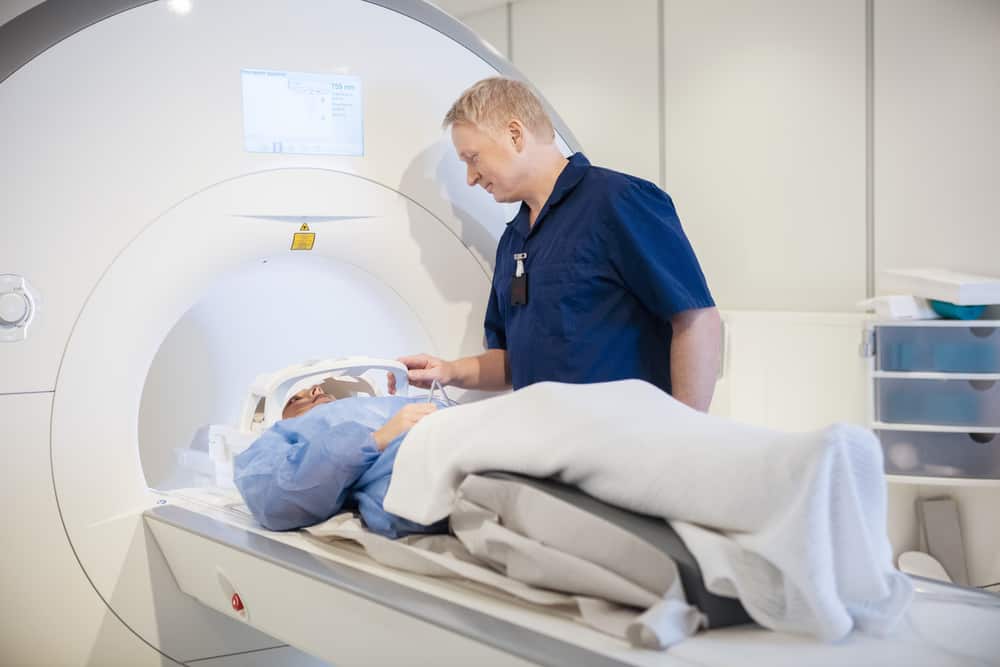MRIs are common tests to take detailed and intricate pictures of the inside of your body for a variety of reasons, but most commonly for diagnosis of an illness or injury. MRI stands for Magnetic Resonance Imaging and can also help doctors determine how effective a particular treatment has been or if they need to propose a new plan of action. MRI imaging can be done on any and all parts of the body, but it’s especially effective in exploring the nervous system and soft tissue.
Although MRI imaging doesn’t use radiation like X-ray, and is generally considered to be a very safe procedure, there are some individuals who should not get an MRI. If you want to know if MRIs are safe for you, be sure to talk to your doctor about your concerns and check out the questions below to learn about who shouldn’t undergo MRI imaging.
Do you have metal in your body?
The “m” in MRI stands for magnetic, so anyone with any form of metal in his or her body should not have an MRI done. It can be dangerous for anyone with metal screws, plates, clips, staples, pins, or wire mesh in their body. Additionally, if you have some sort of implant, such as a cochlear implant, pacemaker, insulin pump, or something similar, you should avoid getting MRI imaging done. If you have any sort of metal shrapnel, bullets, or metal fragments, an MRI won’t be safe for you. Some people with artificial limbs, joints, or heart valves may also need to undergo a different type of diagnostic imaging due to the safety of this magnetic-based imaging test.
Do you have kidney problems?
Although having kidney issues doesn’t completely disqualify you from having MRI imaging, it’s important to talk to your doctor about your personal safety if you have a kidney problem. Some MRIs will require a contrast dye that helps your doctor better see the images from the test. But that dye often contains a metal called gadolinium that can cause serious issues in people with kidney disease. You may be able to get a dye without that metal or forego the dye completely if necessary, or you may be able to have a different type of imaging test done to ensure your complete safety.
Are you newly pregnant?
While MRI imaging does not physically harm unborn babies in most cases, it does raise your body temperature significantly, which can be dangerous for babies in the first trimester. If you’re past your third month of pregnancy, MRIs are generally considered safe for you, although you may not utilize the contrast dye since it will pass to the baby. If you’re newly pregnant, your doctor may choose to wait until a little later in your pregnancy to do an MRI, or they may order a different type of imaging test to address your health concern sooner rather than later.
Are you breastfeeding?
While breastfeeding won’t necessarily disqualify you from undergoing MRI imaging, it’s something you should mention to your doctor. The MRI itself likely won’t make you unable to breastfeed, but if you use the contrast dye for your imaging test, you may need to wait a few days to breastfeed again. Discuss this with your doctor so that you know what to expect and can plan ahead.
Are you allergic to the contrast dye?
While you may not know this right away, be sure to talk to your doctor if you’re concerned about an allergic reaction. If you’ve had a reaction to contrast dye before, you definitely shouldn’t utilize it again, which may mean you need a different type of imaging. Common allergic reactions to the dye include dizziness, hives, nausea, rash, and flushed. Although more serious reactions are rare, they can occur and most commonly include trouble breathing and swollen lips and mouth.
Are you claustrophobic?
MRI machines are generally enclosed tubes. Many people who are afraid of small spaces will do perfectly fine in an MRI machine, but they can make some people anxious or stressed out. If you’re truly claustrophobic or are nervous about being in an enclosed MRI machine, talk to your doctor. You may be able to utilize a different type of imaging test or you may be able to have your test done in an open MRI machine, where the machine is wide open on all sides.
Can you remain still for the entirety of the test?
MRI imaging usually requires individuals to stay completely still for at least thirty minutes, if not longer. Children may struggle to do this, and so may adults with health issues or recent surgeries. If you are not certain that you can remain still for the entire MRI test, talk to your doctor about your concerns and what other options you have.





